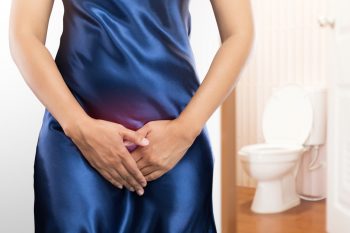After giving birth, your body is incredibly vulnerable to infection. Most of the time, your body will naturally heal itself, but in some cases, you may develop postpartum infection, which can be dangerous if left untreated.
Postpartum infections can be caused by a variety of factors such as bacteria entering your body during labor, weakened immune systems, and poor hygiene practices. It is important to be aware of the signs and symptoms of postpartum infection to ensure early detection and prompt treatment.
In this blog post, we will discuss the most common signs of postpartum infection and what you can do to prevent and treat it if it develops.
Fever
A fever is a common symptom of postpartum infection. If your temperature is over 100.4°F or you experience chills, headaches, and sweating, it is crucial to seek medical attention. A fever could indicate an underlying infection that needs to be treated promptly.

Fatigue
Feeling tired and drained after giving birth is perfectly normal, but if your fatigue persists and interferes with your daily activities, it could be a sign of infection.
If you experience prolonged periods of exhaustion, it is important to speak with your healthcare provider.
Foul smell or discharge
If you experience an intense odor or unusual discharge from your vagina, this could be a sign of postpartum infection.
You may notice a foul-smelling discharge, pus, or blood that has a strong odor. If you notice any changes in your discharge or a particularly unpleasant odor, seek medical attention immediately.
Painful urination
Painful urination can be a sign of a urinary tract infection, which can often occur after childbirth. If you experience pain, stinging or burning sensation while urinating, this is a sign that something is wrong, and it could be a red flag for urinary tract infection.

Abdominal pain
Sudden abdominal pain days after delivery may indicate the presence of an infection. If the pain is severe, persistent, and cannot be explained by regular postpartum pain, you should seek medical attention.
Abdominal pain could also be accompanied by fever, chills, and other symptoms that suggest an infection.

It is imperative to keep an eye on your body’s signals after giving birth. Ignoring or dismissing any unusual symptoms can quickly escalate into a dangerous postpartum infection.
Remember, early detection and treatment of postpartum infection can prevent complications and lower the risk of other health problems. Don’t suffer in silence; talk to your healthcare provider if you experience any of the above symptoms.
And if possible, follow the preventive measures to reduce the risk of postpartum infection. Congratulations on your new baby, and we wish you a quick and healthy postpartum recovery.


